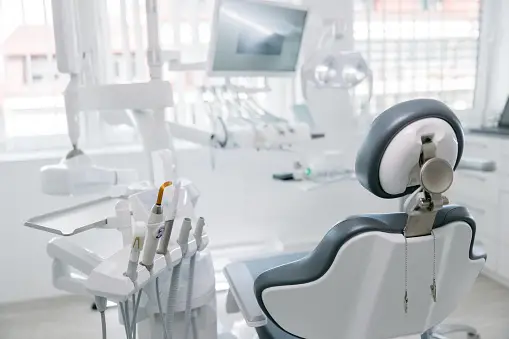
15 Mar Finding the Right Buyer for Your Dental Practice: Tips for a Successful Transition
Selling A Dental Practice in 2024

Selling a dental practice in 2024 can be a significant decision influenced by various factors. As a dental practitioner, several reasons might prompt you to consider selling your dental practice, ranging from personal to professional considerations. Here are several key reasons why selling your dental practice in 2024 might be a viable option:
Retirement
One of the most common reasons for selling a dental practice is retirement. After years of hard work and dedication to your patients, you may feel ready to transition into retirement and enjoy the fruits of your labor. Selling your practice allows you to step away from the daily responsibilities of running a dental office and enjoy your retirement years.
Health Reasons
Health issues can arise unexpectedly, making it challenging to continue managing a dental practice. If your health is a concern, selling your practice can alleviate the stress of running a business while focusing on your well-being.
Relocation
Personal or family reasons may require you to relocate to a different area. Selling your practice allows you to move without the burden of managing a dental office from a distance.
Financial Considerations
Financial factors can also influence the decision to sell a dental practice. Selling at the right time can help you maximize the value of your practice and secure your financial future.
Changes in Lifestyle
Your lifestyle preferences or goals may change over time. Selling your practice can provide you with the flexibility to pursue other interests or spend more time with family and friends.
Burnout
The demanding nature of dentistry can lead to burnout, impacting your quality of life and patient care. Selling your practice can help you avoid burnout and regain a sense of balance in your life.
Market Conditions
The dental industry is constantly evolving, and market conditions can significantly influence the decision to sell a practice. Selling during a favorable market can result in a higher sale price and a smoother transition.
Partnership Dissolution
If you have a partner or co-owner in your practice and decide to dissolve the partnership, selling the practice may be the most practical solution.
Career Change
Some dentists may decide to pursue a different career path outside of dentistry. Selling your practice can provide you with the financial resources to make a smooth transition to a new career.
Estate Planning
Including your dental practice in your estate planning can ensure a smooth transfer of ownership and provide financial security for your loved ones.
By carefully considering these factors and seeking professional guidance, you can make an informed decision that aligns with your personal and professional goals.
How Do I Find A Buyer?
Finding potential buyers for your dental practice involves a strategic approach to attract qualified and interested individuals or entities. Here are some steps you can take to identify and reach out to potential buyers:
Define Your Ideal Buyer
Before you start searching for buyers, it’s essential to identify your ideal buyer profile. Consider factors such as their professional background, financial capacity, and compatibility with your practice culture.
Consult with Professionals
Seek advice from professionals who specialize in dental practice sales, such as dental brokers, consultants, or accountants. They can provide valuable insights and guidance throughout the selling process.
Network within the Dental Community
Attend dental conferences, seminars, and networking events to connect with other dentists who may be interested in purchasing a practice. Joining dental associations and online forums can also help you reach a wider audience.
Utilize Online Platforms
Online platforms dedicated to buying and selling dental practices can be a valuable resource. List your practice on reputable websites and forums to attract potential buyers from across the country.
Engage with Dental Schools
Contact dental schools in your area or nearby regions to explore opportunities for selling your practice to recent graduates or established dentists looking to expand their practice.
Advertise Locally
Place advertisements in local dental publications, newspapers, and online platforms to attract potential buyers in your area. Highlight your practice’s unique features and strengths to generate interest.
Utilize Social Media
Leverage social media platforms such as LinkedIn, Facebook, and Twitter to promote your practice sale. Join dental groups and communities to connect with professionals who may be interested in buying a practice.
Engage with Dental Supply Companies
Dental supply companies often connect with dentists looking to purchase practices. Contact these companies to explore potential leads.
Consider Direct Mail Campaigns
Develop a targeted mailing list of potential buyers and send out direct mail campaigns highlighting the sale of your practice. Include relevant information and contact details to encourage inquiries.
Attend Transition Seminars
Dental brokers or consultants often conduct transition seminars and workshops. Attend these events to learn about the latest trends in practice sales and connect with potential buyers.
Engage with Financial Institutions
Financial institutions, such as banks or credit unions, may have clients who are interested in purchasing dental practices. Establish relationships with these institutions to explore potential leads.
Maintain Confidentiality
When reaching out to potential buyers, ensure confidentiality to protect the sensitive information of your practice. Use non-disclosure agreements (NDAs) to safeguard your interests.
Smooth Transition
Transitioning your dental practice to a new buyer involves careful planning and execution to ensure a smooth handover of operations and patient care. Here are some easy ways to facilitate the transition process:
Document Standard Operating Procedures (SOPs)
Create detailed SOPs for all aspects of your practice, including patient scheduling, billing, and treatment protocols. This documentation will help the new buyer understand how your practice operates and facilitate a smooth transition.
Introduce the Buyer to Staff and Patients
Arrange meetings between the new buyer, your staff, and key patients. Introducing the buyer to your team and patients can help build rapport and ensure a seamless transition of relationships.
Provide Training and Support
Offer training and support to the new buyer during the transition period. This can include shadowing you or your staff, providing access to training materials, and offering guidance on practice management.
Transfer Patient Records and Files
Ensure that all patient records and files are transferred securely to the new buyer. This includes medical histories, treatment plans, and any other relevant information.
Update Insurance and Billing Information
Update insurance and billing information to reflect the new buyer’s details. This will ensure that billing and insurance claims are processed correctly after the transition.
Communicate Clearly and Transparently
Maintain open communication with the new buyer throughout the transition process. Address any concerns or questions they may have and provide regular updates on the transition’s progress.
Finalize Legal and Financial Arrangements
Work with legal and financial advisors to finalize the sale agreement and ensure all legal and financial obligations are met before the transition.
Plan for a Transition Period
Consider staying on for a transition period after the sale to help the new buyer settle in and address any issues that may arise. This can provide continuity of care for patients and facilitate a smoother transition overall.
Seek Feedback and Continuously Improve
After the transition is complete, seek feedback from the new buyer, staff, and patients to identify areas for improvement. Use this feedback to refine your transition process for future sales.

Ready T0 Sell
Selling a dental practice is a significant decision that requires careful consideration and planning. Whether you are selling due to retirement, health reasons, or other personal or professional factors, it is important to approach the process with a clear strategy. By defining your ideal buyer, networking within the dental community, utilizing online platforms, and engaging with professionals, you can effectively identify potential buyers and facilitate a smooth transition. Documenting standard operating procedures, introducing the buyer to staff and patients, and providing training and support can help ensure a seamless handover of operations and patient care. By following these steps and seeking professional guidance, you can successfully transition your practice to a new buyer and embark on the next chapter of your career with confidence.



Sorry, the comment form is closed at this time.